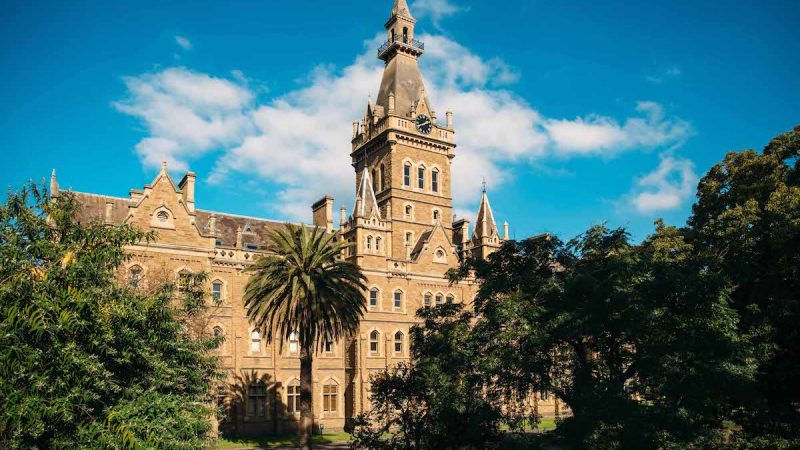
A 20-year-old student from the University of Melbourne‘s Ormond College, known only as Ellie, has written a searing essay about her experience of rape on campus for the College’s annual writing collection, the Ormond Papers.
Her account is believed to be the first time the 137-year-old College has ever published an essay so carefully articulating a student’s experience of, and the school’s responses to, sexual assault.
You can read the anthology, dedicated to the concept of ‘Change’, in full HERE. In the editorial, Hue Man Dang, editor-in-chief, writes that the aim of the publication is to “share stories of change and to instigate change in our community – to be more progressive, reflective, and sustainable“.
Ellie writes that she was raped by someone she trusted, and someone she knows to be a serial sexual offender: “In my first year of college I was raped. He was someone I trusted, someone I was friendly enough with. I wasn’t his first victim. I hope I was his last, though statistically we know this is unlikely.”
She also writes that she was reluctant to share her story, for fear she would be seen a victim with too much skin in the game to continue to be a vocal advocate for an improved campus culture towards sexual violence. But, she says, she hopes to start a conversation.
The conversation Ellie starts is about the inadequate responses of the College, and the University as a whole to sexual violence on campus, a problem outlined in scrupulous detail in last year’s AHRC report Change the Course.
She writes that in professional development workshops for college counsellors and university staff, it was implied that students engaging in “risk-taking behaviour” – that’s drinking, drugs, wearing certain clothing – when they were assaulted need to be “sensitively” told that their behaviour too has to change. Oh boy.
Ellie points to flaws in the college’s policy on sexual assault – because it’s the exact same policy Ormond uses for bullying and discrimination. The college needs a separate document for sexual misconduct.
“Ultimately, we currently exist in a system that works against victim/survivors, not with them,” she writes.
She also calls out the University itself for their lack of action on the issue: “When perpetrators are likely to receive harsher punishments for plagiarism than for sexual assault then we’ve got a problem.”
At the end of the essay Ellie recalls coming face to face with the man who assaulted her at a campus event.
I was entirely alone the moment I glanced over to see him sitting just a few seats away from me. Everything dissolved in the moment when he turned and shot me a smile. Only two people in that room knew what he’d done to me that night, one of them was staring right at me, and the other was me. Is me. And only I knew what it felt like to sit through the rest of that evening reliving fragments of that night again, and again, and again. I was an alien in my own home.
Still, Ellie writes Ormond is her home, and that that home is changing for the better:
Ormond also gave me a place to call home – for a little while. Surely though, if we’re going to call Ormond our home then we’ve also got to address the toxic waste that’s pooling up underneath the kitchen sink. Something has got to give. Something is going to give. I promise.
Talking to The Age, the College’s new master, Lara McKay, supported the decision to publish Ellie’s essay: “It is only through frank and fearless conversations around issues that are sometimes difficult to talk about, that we can create change.”
Ellie herself also spoke to the Melbourne paper, synthesising her writing about what more the College and the University can do for survivors, including introducing anonymous reporting, better training for staff and student, and education around consent.
“I felt there were some pretty obvious solutions to the barriers victim-survivors face when reporting,” she said. “Anonymous reporting is really important. Victims can use it as a bit of a stepping stone and it gives institutions the ability to see how prevalent the issue of sexual assault is.”
If you or someone you know are affected by the following story, you are not alone. To speak to someone, you can call Lifeline on 13 11 14, or 1800 RESPECT on 1800 737 732.



